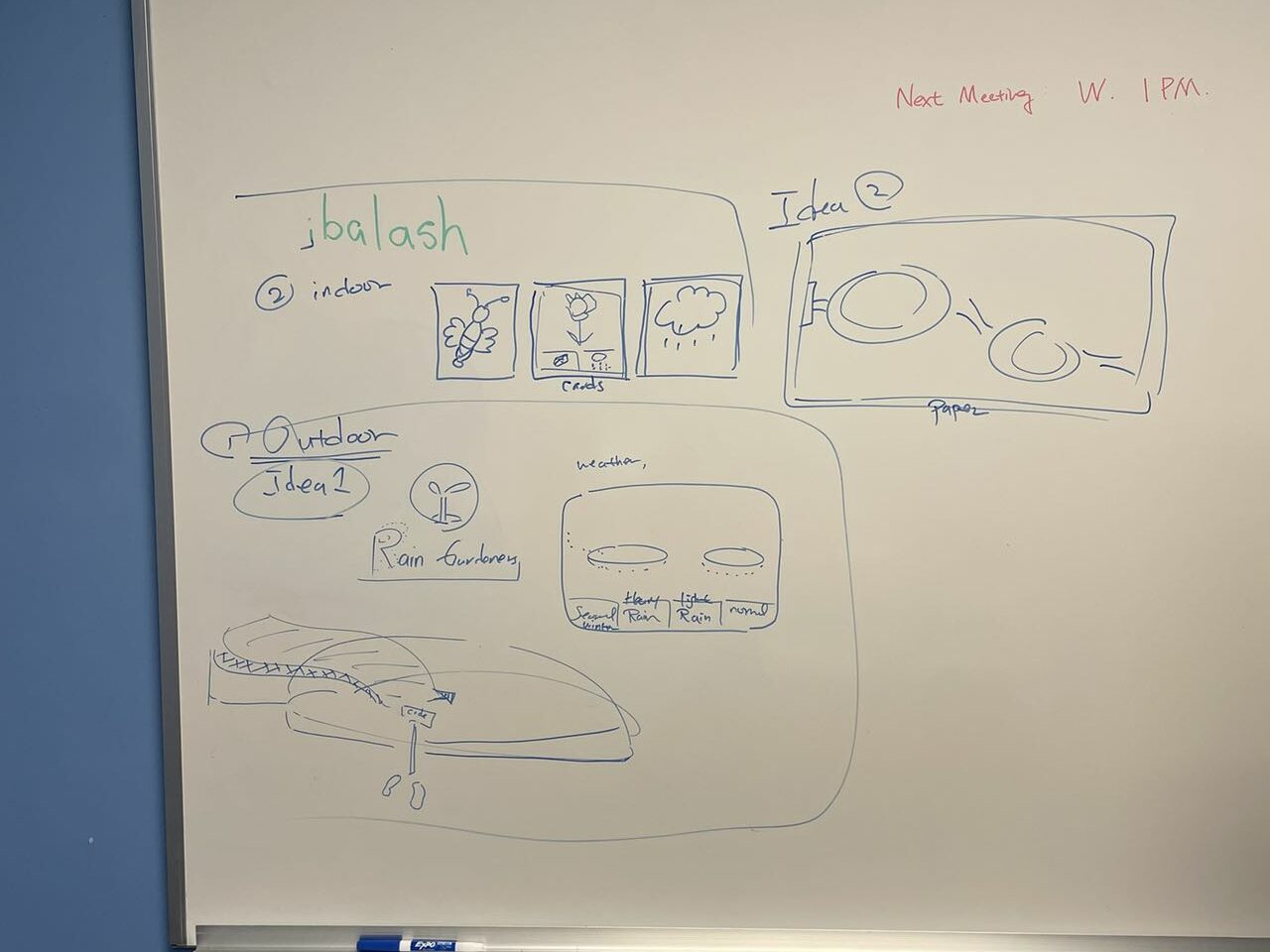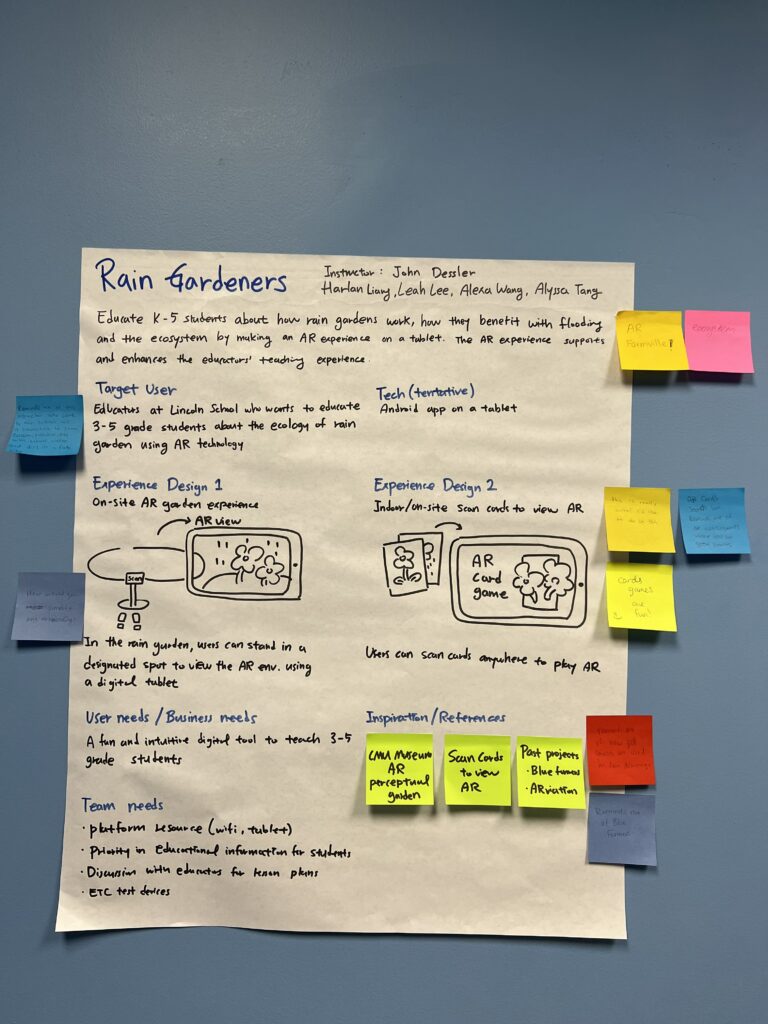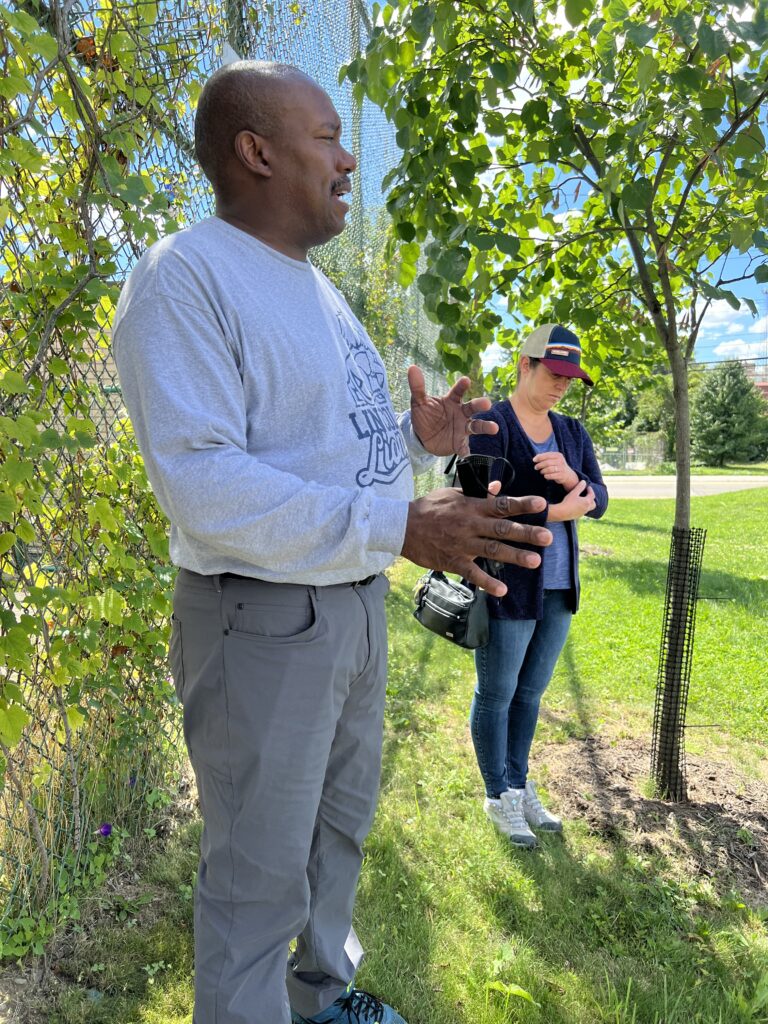This week our team came up with the initial ideas and met on site with the clients, when we had further discussions about the topics we would like to cover.
Initial Idea
On Wednesday we prototyped two design ideas that we will both pursue in the experience.
The first one is an on-site AR experience. In the rain garden, users can stand in a designated spot to view the AR environment using a digital tablet. It will be showing various scenarios in the garden, like how it looks when flooding is happening and how the garden helps deal with it. Also by using the AR technology we can enhance the look in the garden by showing bees and butterflies in it without having the students exposed to them.
The second one is an AR card game inspired by AR chemistry learning experience. Players can see the objects accordingly when they scan the cards, and combine them to watch the effects. We plan to scatter the cards in the garden site and also hand them out to teachers for indoor use. Right now we plan to have a map of the rain garden and have flood, different plants, insects and rocks etc. for the children to play with.

Composition Box
Based on the designs, the team built a composition box and received multiple comments in ETC workshop time.

Productions
We also create our team calendar, setting up the core hour and instructor/client meeting time. And we have a milestone for tracking all iterated versions. Also this week we have our Logo and short description:
Rain Gardeners consists of 4 second-year students from CMU ETC. Working with our client, The Western Pennsylvania Conservancy, we are creating a fun and intuitive digital tool using AR technology for educators at Lincoln School who want to educate 3-5 grade students about the ecology of a rain garden.
The goal is to help students have a better understanding of how rain gardens work, how plants benefit from flooding, and the ecosystem by making an AR experience on tablets. This is a project that supports and enhances the educators’ teaching experience.

Meeting On-site
Our clients are quite satisfied with our design prototypes, and we met on site at the rain garden when they made deeper introductions to the team. We got to know more about how it functions and the main points that should be covered in the experience.
Education purpose is most important in this project. Therefore, we also met with teachers in Lincoln K5 School, talking about the teaching routines and how the product can help them with the teaching. We aim to use the AR experience to build conceptual models as an enhancement to textbook materials, and help demonstrate concepts like water cycle, plant protection, flooding solutions, and other scientific knowledge behind it.

